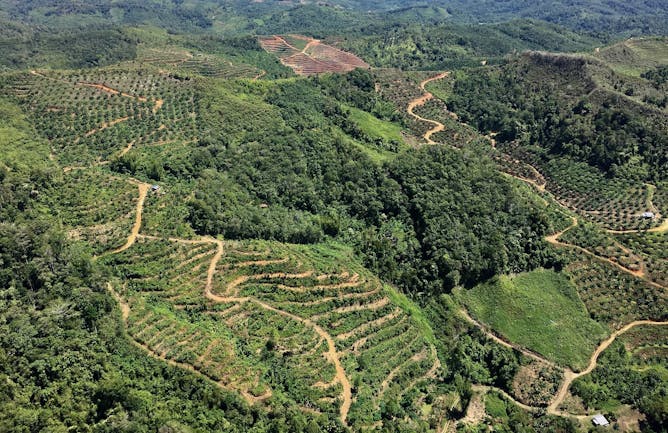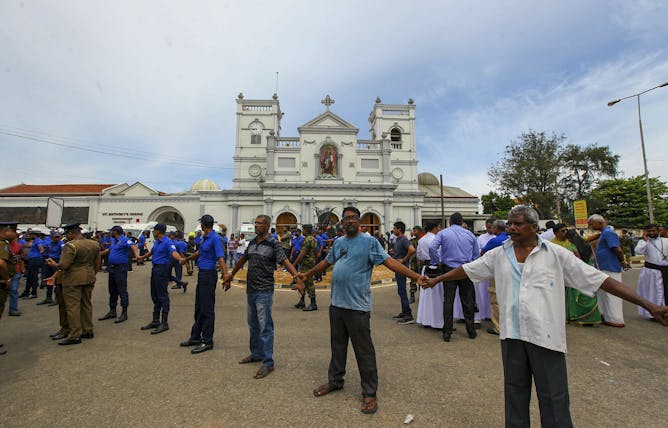Editor's note
|
|
Many news outlets will mark Earth Day today with commentaries on the dire state of our planet. Take heart, though: Scientists are exploring ways to flip this script. Arizona State University ecologist Greg Asner describes new research proposing a “Global Deal for Nature” that would protect half the Earth, with a dual purpose: saving species and curbing climate change.
Two hundred and ninety people were killed and hundreds more injured in coordinated suicide bomb attacks on churches and hotels in Sri Lanka on Easter Sunday. Holy Cross’ Mathew Schmalz, who lived in Sri Lanka and studied its Christian community, writes about its long history in the island nation, starting with Portuguese colonialism in the 16th century to present-day ethnic strife.
Netflix’s subscriber base has exploded in recent years, yet the streaming service’s business model doesn’t seem to make sense. The company doesn’t collect ad revenue, burns through cash, and has mountains of debt. Middlebury College media scholar Jason Mittell wonders if we’re looking at things through the wrong lens. See Netflix as a data collection company, he explains, and the company’s grand plans
begin to crystallize.
|
Jennifer Weeks
Environment + Energy Editor
|

|
|
Top stories
|

An aerial photo of Borneo shows deforestation and patches of remaining forest.
Greg Asner
Greg Asner, Arizona State University
A new study lays out a road map for protecting and restoring 50% of Earth's surface, targeted to preserve biodiversity and maximize natural removal of carbon from the atmosphere.
|

Sri Lankan army soldiers secure the area around St. Anthony’s Shrine after a blast in Colombo.
AP Photo/ Rohan Karunarathne
Mathew Schmalz, College of the Holy Cross
Suicide bombers struck Sri Lanka's churches and hotels on Easter Sunday, killings and injuring hundreds of people. Seven percent of Sri Lanka's population is Christian – most of them Roman Catholics.
|

Netflix currently spends much more cash than it brings in, leading to consistent negative cash flow and a mountain of debt.
sakhorn/Shutterstock.com
Jason Mittell, Middlebury
Something about Netflix's business model just doesn't add up – unless you look at the streaming service as a massive data collection company.
|
|
|
|
|
Politics + Society
|
-
David Orentlicher, University of Nevada, Las Vegas
Mueller's report describes more than a dozen times Trump may have broken the law. Here's how Congress will decide whether the president obstructed justice during federal probes into his presidency.
-
Raechel A. Portelli, Michigan State University
Google, Amazon and other powerful groups are renaming American cities and neighborhoods. That may make the area more appealing to newcomers – but, in many cases, residents aren't happy.
|
|
|
|
|
|
Most read on site
|
-
Jeyaraj Vadiveloo, University of Connecticut
How many healthy years of life do you have ahead before you become unhealthy – and then die? One model tries to find the answer.
-
Anjana Susarla, Michigan State University
Technology experts have long worried about a 'digital divide' between those who could use computers and those who could not. Artificial intelligence algorithms are widening the gulf.
-
Eyal Amiel, University of Vermont
The growing number of cases of measles has many people asking: Am I safe? A vaccine expert provides some answers.
|
|
|
|
| |
| |
|
|